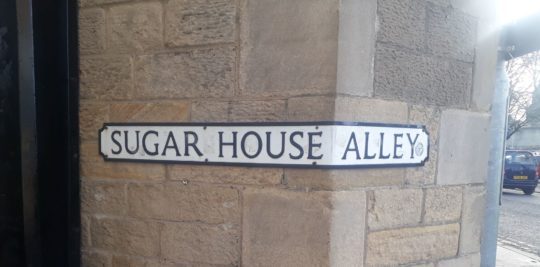
‘Shameful and disgusting’: BAME Students’ Officer in favour of renaming The Sugarhouse
‘The celebration of the name Sugarhouse overlooks the history of those who were sacrificed to ensure that the Empire succeeded’
Following a discussion that took place on the 11th August this year, Lancaster University Students’ Union’s FTOs (Full-Time Officers) and PTOs (Part-Time Officers) have made statements weighing in on the debate to rename the SU-owned nightclub The Sugarhouse.
As what was the fourth largest slave-trading port in England, Lancaster still has links to a dark past in the present day. Most notably, this past involved the importation of sugar from the West Indies. The Sugarhouse nightclub is located where a sugar processing and storage site by the same name was founded in 1684.
This was pointed out by LUSU’s VP Union Development, Atree Ghosh, who went on to say that the nightclub’s “connection with the slave trade is never really publicised to students despite it being the core reason behind the name for the venue.”
Ghosh dismissed claims that renaming The Sugarhouse will worsen the financial crisis the Students’ Union finds itself in, saying: “Resources in terms of large amounts of staff hours are in no way being spent on exploring this issue. However, a discussion on a variety of topics is necessary, especially to facilitate workable solutions.”
Ghosh goes on to empathize that “this is not a short-term plan.” It is important that students still feel like the club is theirs and that they have “ownership” of the name. Suggestions such as “Clubby McClubFace” would not be taken as an option straight away.
When it comes to the issue of Sugarhouse Alley (the street where the club is located) Ghosh reassures that if a rebranding took place it would be possible “to approach the local council and begin discussions on potentially changing the name of said alley.”

The SU BAME Students’ Officer, Max Kafula, provided more information, telling the story of Dodson Foster who moved to Lancaster in 1752 and entered the slave trade business at the age of 21. Kafula went on to explain that the effects of Lancaster’s colonial past are still felt to this day. The role of the sugar storage facility was crucial for the wealth of the British Empire from the period 1684 to 1833.
Kafula’s statement was especially critical of the Students’ Union for telling half-truths by only making available the fact that The Sugarhouse was established in 1982. He suggests that this was a way of “intentionally leaving out its colonial and slave trade links.”
However, Kafula is also sympathetic concerns that renaming the nightclub may appear “performative” as well as those about erasing the history of the club “and thus forever sweep under the carpet of its disturbing history.” But he still sees renaming the club as a “necessary change” because “history lives on through education.”

BAME Students Officer, Max Kafula, has thrown support behind renaming the Union-run nightclub
The statement concludes by calling out the rose-tinted view that many British people have of the British Empire: “We have been cultured to act, think, and behave that the empire brought right to the world.”
Kafula makes a final promise to continue to campaign for the renaming of The Sugarhouse as part of a continued battle against injustices with the aim of honouring the lives of those that were slaves and “for permanent memory of those, to be enshrined within the Lancaster University Students’ Union and within the club.”
Related stories recommended by this writer:
‘He has voted against my right to adopt’: LUSU President condemns Pro-Chancellor
Issues I have with your understanding of racism: sincerely, a tired black Lancaster student
All these Lancs locations are linked to the slave trade and you didn’t even notice









































